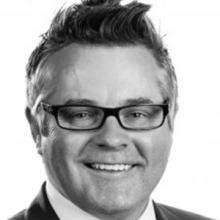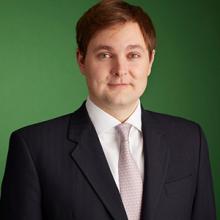Dell and the art of Investment Philosophy
During his high school holidays, Dell Inc founder, chairman and CEO Michael Dell sold subscriptions to the Houston Post newspaper.
Showing the entrepreneurial spark that would propel him to become one of America's most successful businessmen, Dell quickly observed that those most likely to buy a subscription were newlyweds and people moving into new homes. He targeted this demographic group by collecting names from marriage and mortgage applications and in one year earned $18,000, exceeding the annual income of many of his teachers.
In founding Dell Inc, his iconic computer business, Dell followed a similarly basic yet extremely successful formula: he cut out the middlemen and sold computers direct to the customer. By the time Dell became the youngest CEO ever to earn a ranking on the Fortune 500 list, Dell Inc was already turning over in excess of a billion dollars.
In establishing MSD Capital, his family office, in 1998, Dell was again keen to do something out of ordinary.
"We are not your traditional, run-of-the mill family office," confirms John Phelan, the man Dell chose 12 years ago to co-lead MSD. It started with AUM of $400 million today manages assets of $11 billion for Dell and his family. While its primary objective is, rather conventionally, long-term capital appreciation, key to the MSD philosophy is a recognition that managing wealth is a business, not a hobby that can follow the whims of a rich benefactor.
"We focus on risk-adjusted, after-tax returns with appropriate benchmarks and timeframes. Ultimately, we are fundamental value investors," says Phelan. However, he claims the firm is equally keen to pursue opportunistic investments and says in the current climate MSD sees opportunity in Europe and US credit markets in particular.
"Volatility is our friend. The fact that the average stock price on the NYSE fluctuates by up to 50% is a great opportunity, not a reason to be fearful," Phelan continues, who says MSD typically has 10-15% of its assets in cash although it has been as high as 30% recently. Before pursing any opportunity, the culture that Dell has installed in MSD kicks in to gear. "It took us two years to write our values and mission statement and three years to finalise our business plan," explains Phelan. In other words, investment decisions are not taken on a whim. That's not to say that that every decision takes an age; rather it points to a well-honed investment philosophy that is clear about its goals and the path it needs to take in order to fulfil them.
"Like a world-class athlete, we focus on process not outcome," Phelan says. "We try to be contrarians, which is much tougher than you think. It is much harder psychologically to be unsure than to be sure."
Underpinning the whole operation is MSD's commitment to maintaining a permanent capital base, which MSD believes differentiates it from similar outfits. A focus on long-term goals and investment horizons is never skewed by short-term performance.
Operating from the firm's offices in New York, Santa Monica and London, MSD's 80 staff are primarily focused on five investment areas: publicly-traded securities; traditional private equity activities; real estate; special opportunities; and selective investments with established third-party managers in both private and public markets.
With such a broad mandate, risk management is of paramount importance. MSD defines risk as "the permanent loss of capital." Rigorous, bottom-up research applies to every investment that MSD makes. It is particularly key to its private equity investments, however, where MSD typically invests between $100 million and $250 million in equity per transaction.
When making large strategic investments, MSD encourages its management teams to manage for the long term rather than focusing on the next quarter. However, Phelan is keen to point out that any investment thesis must stand up to proper scrutiny. He says: "What you do is more important than what you say when it comes to making investments." For example, when making equity investments MSD acts as partial owner of that particular business and has little time for the relative value of other "peer" companies. While it helps that in some cases it is the largest non-institutional shareholder, often it invests as a minority investor.
But beating the market requires a portfolio that looks different to the market, according to Phelan, who advocates looking at both investments and markets in a contrarian, inverted way.
The family office is also aware of its limitations. In regard to its real estate investments, for example, MSD has formed what Phelan terms "important" relationships with a range of partners and even welcomes inquiries for investments through its website.
When it comes to analysing its investments, Phelan is not a fan of relying on general stock-market benchmarks: "We explore investment strategies that are less benchmark constrained than traditional approaches. Instead, we favour the flexibility of focusing on investment talent over the rigid style/capitalisation standards historically promoted by investment advisors."
Ultimately, Phelan believes that what matters most in determining the success or failure of an investment is the relationship between the price you pay and what the asset is worth. "Valuation matters," he proclaims as if it were a Buddhist mantra.
The advantages of the MSD model – a long-term, contrarian yet generalist approach supported by permanent capital – are clear to Phelan, but he is candid about its limitations.
First, he says it's a strategy that is "extremely tough" to execute, but his boss has not made billions by taking easy decisions. Second, the model is expensive due to the global nature of its business, financial complexity and up-to-the-minute technology.
When it comes to finding the right talent, things do not get any easier. "Talent is expensive and competition for it is fierce," says Phelan, who goes on to outline the firm's compensation philosophy as being long-term with no personal accounts and required reinvestment.
Phelan admits it can also be difficult to find like-minded investors who share their investment philosophy. But he views this as both a disadvantage and an advantage. While such partners are not beating a path to his door every day, those that clearly don't fit can be filtered out pretty quickly.
For example, the holy grail that many investors look for – liquidity, high returns, low volatility, transparency and group validation – is not a philosophy that MSD is comfortable with.
"This is exactly what Madoff gave investors and if you really think about it, it is a black swan," says Phelan. Those partners that do pass muster may be rarer breeds, but they are generally worth the wait.
Michael Dell, the man behind the wealth
Michael Dell, 45, is the chairman of the board of directors and chief executive officer of Dell, the company he founded in 1984 with $1,000. Today, Dell is a multinational IT business that that develops, sells and supports computers and related products and services. It had 2009 revenues of $59.2 billion.
In 1992, Michael Dell became the youngest CEO ever to earn a ranking on the Fortune 500. In 1998, he formed MSD Capital, and in 1999, he and his wife formed the Michael & Susan Dell Foundation to manage the investments and philanthropic efforts, respectively, of the Dell family. Michael Dell is the author of Direct From Dell: Strategies That Revolutionized an Industry, his story of the rise of the company and the strategies he has refined that apply to all businesses.
He serves on the Foundation Board of the World Economic Forum, the executive committee of the International Business Council and is a member of the US Business Council. Michael Dell also serves on the Technology CEO Council and the governing board of the Indian School of Business in Hyderabad, India.
Key questions every family office should be asking:
1. Should an investor sell a good stock in the face of a potentially bad market?
2. How do you value invest in a bubble?
3. How do you resist following the "herd" when performance is evaluated to a short-term benchmark?
4. How do you define alpha? Can it really be measured well? Put another way, how do you risk-adjust investments?
5. If everyone wants liquidity what should you want?
6. How do you appropriately risk manage in an increasingly interconnected, globally correlated world? What role should macro play?






